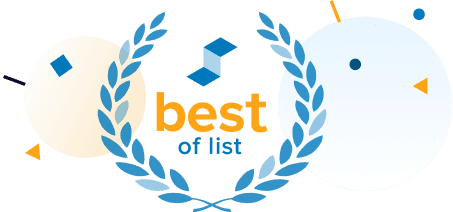Best Solar Panel Loans
April 2024
When it comes to transitioning to solar energy, obtaining the right financing can make all the difference. Personal loans for solar panel installation offer homeowners and businesses a pathway to affordable and accessible solar installations.

SuperMoney may receive compensation from some or all of the companies featured, and the order of results are influenced by advertising bids, with exception for mortgage and home lending related products. Learn more
In this article, we will explore the top solar panel loans available, their benefits, eligibility requirements, and key considerations to help you make an informed decision in your journey towards solar energy adoption.
Let's start with the 5 best solar panel loans
Key considerations for choosing solar loans
When selecting a solar loan, it is essential to carefully consider various factors to ensure that it aligns with your financial goals and preferences.
Loan amount and interest rates
The loan amount and interest rates are crucial considerations. Evaluate the loan options to determine the maximum loan amount available to you and compare the interest rates offered by different lenders. Finding a balance between a reasonable loan amount and favorable interest rates can significantly impact the overall cost and affordability of your solar installation.
Loan repayment terms and options
Examine the repayment terms and options offered by lenders. Look for flexible repayment terms that suit your financial capabilities. Some lenders may provide fixed monthly payments, while others offer graduated or adjustable payment structures. Assess your financial situation and choose a repayment plan that fits your budget and long-term financial goals.
Eligibility criteria and documentation
Understand the eligibility criteria and required documentation for each loan option. Lenders typically consider factors such as credit history, income, and property ownership. Review the specific requirements of each loan and ensure that you meet the eligibility criteria. Additionally, familiarize yourself with the necessary documentation, such as proof of income, tax returns, and property information, to streamline the loan application process.
Additional fees and charges
Take into account any additional fees and charges associated with the solar loan. These fees may include loan origination fees, processing fees, or early repayment penalties. Carefully review the loan terms and disclosure documents to identify and compare the costs associated with each loan option. Being aware of these fees will help you make an informed decision and avoid unexpected financial obligations.
Flexibility and transferability
Consider the flexibility and transferability of the loan. Determine if the loan allows for prepayments or if you can transfer it to a new owner in the event of selling your property. Flexibility in loan terms can provide opportunities to save on interest costs or adapt to changing financial circumstances. Similarly, transferability options can be advantageous if you plan to sell your property in the future.
By carefully evaluating these key considerations, you can choose a solar loan that suits your financial needs, aligns with your long-term goals, and ensures a smooth transition to solar energy.
Maximizing solar loan benefits
To make the most of your solar loan and optimize the benefits of your solar panel system, consider the following key factors:
Calculating your energy needs and savings
Before installing a solar panel system, it is essential to accurately assess your energy needs. Evaluate your current energy consumption patterns and determine the desired level of energy independence. By understanding your energy needs, you can appropriately size your solar system to maximize savings and ensure it meets your electricity requirements.
Selecting the right solar panel system
Choosing the right solar panel system is crucial for long-term benefits. Research various solar panel technologies, evaluate their efficiency, durability, and warranties. Consider factors such as available roof space, local weather conditions, and shading. Additionally, consult with solar experts or installers to determine the best solar system that aligns with your goals and budget.
Understanding tax incentives and rebates
Take advantage of available tax incentives and rebates to further enhance the financial benefits of your solar panel system. Research and understand federal, state, and local incentives, such as investment tax credits, grants, or performance-based incentives. These incentives can significantly reduce the upfront costs and overall payback period of your solar investment.
Bottom line
Comparing solar loan options is essential to make an informed decision that aligns with your financial goals and preferences. When evaluating different loans, consider criteria such as interest rates and APR, loan terms and repayment options, additional fees and charges, and the loan approval timeframe. By carefully assessing these factors, you can choose the solar loan option that offers the most favorable terms, helps maximize your savings, and enables a seamless transition to clean and sustainable solar energy.
Solar loan FAQs
How do solar loans work?
Solar loans work by providing individuals or businesses with the necessary funds to finance the installation of a solar panel system. Borrowers receive a lump sum or a line of credit, which they can use to purchase and install solar panels. The loan is then repaid over a specified term, typically through monthly installments. The borrower benefits from the energy savings generated by the solar panels, which can help offset the loan repayment. Once the loan is fully repaid, the borrower fully owns the solar panel system and continues to enjoy the benefits of renewable energy.
What are the eligibility requirements for solar loans?
Eligibility requirements for solar loans can vary depending on the lender and the specific loan program. However, common eligibility criteria may include factors such as credit history, income, property ownership, and debt-to-income ratio. Lenders may also consider the property's suitability for solar installation, such as available roof space and orientation. It is important to review the eligibility requirements of different lenders to determine if you meet the criteria before applying for a solar loan.
Can I use solar loans for both residential and commercial properties?
Yes, solar loans are available for both residential and commercial properties. Whether you are a homeowner or a business owner, you can explore solar loan options to finance the installation of solar panels on your property. However, loan terms and eligibility criteria may differ for residential and commercial solar loans, so it is advisable to research and compare offerings specific to your property type.
Are there any tax incentives for solar loans?
Yes, there are tax incentives available for solar loans in many regions. One significant incentive is the federal investment tax credit (ITC) in the United States, which allows homeowners and businesses to claim a percentage of the solar system's cost as a tax credit. Additionally, certain states and local governments offer their incentives, such as rebates or grants, to encourage the adoption of solar energy. It is important to consult with a tax professional or review relevant government websites to understand the specific tax incentives available in your area.
How long does the solar loan application process typically take?
The duration of the solar loan application process can vary depending on several factors, including the lender, loan program, and the completeness of the borrower's documentation. In general, the application process may take anywhere from a few days to several weeks. It involves gathering required documentation, completing the loan application, undergoing credit checks, and awaiting loan approval. To expedite the process, borrowers should ensure they provide all necessary information and promptly respond to any requests from the lender.
What happens if I sell my property before paying off the solar loan?
If you sell your property before fully paying off the solar loan, different scenarios may occur depending on the loan terms and conditions. In some cases, the solar loan may be transferable to the new property owner, allowing them to assume the loan and benefit from the solar panel system. Alternatively, you may need to repay the remaining loan balance from the proceeds of the property sale. It is crucial to review the loan agreement and consult with the lender to understand the specific terms and options available in the event of a property sale.
Are there any maintenance costs associated with solar panel systems?
While solar panel systems generally require minimal maintenance, there may be some associated costs. Routine maintenance may include occasional cleaning of the solar panels to remove dirt or debris, as well as inspection of electrical connections and system performance. Some homeowners choose to hire professional solar maintenance services, which can incur additional costs. However, the maintenance costs for solar panel systems are typically low compared to the long-term energy savings they provide.
About the Author

SuperMoney
SuperMoney is the most comprehensive financial services comparison site around. We have published hundreds of personal finance articles and provide detailed reviews on thousands of financial products and services. Our unbiased advice and free comparison tools help consumers make smart financial decisions based on hard data, not marketing gimmicks.
Table of Contents
You might also like
Get Competing Personal Loan Offers
Compare real offers from multiple lenders.